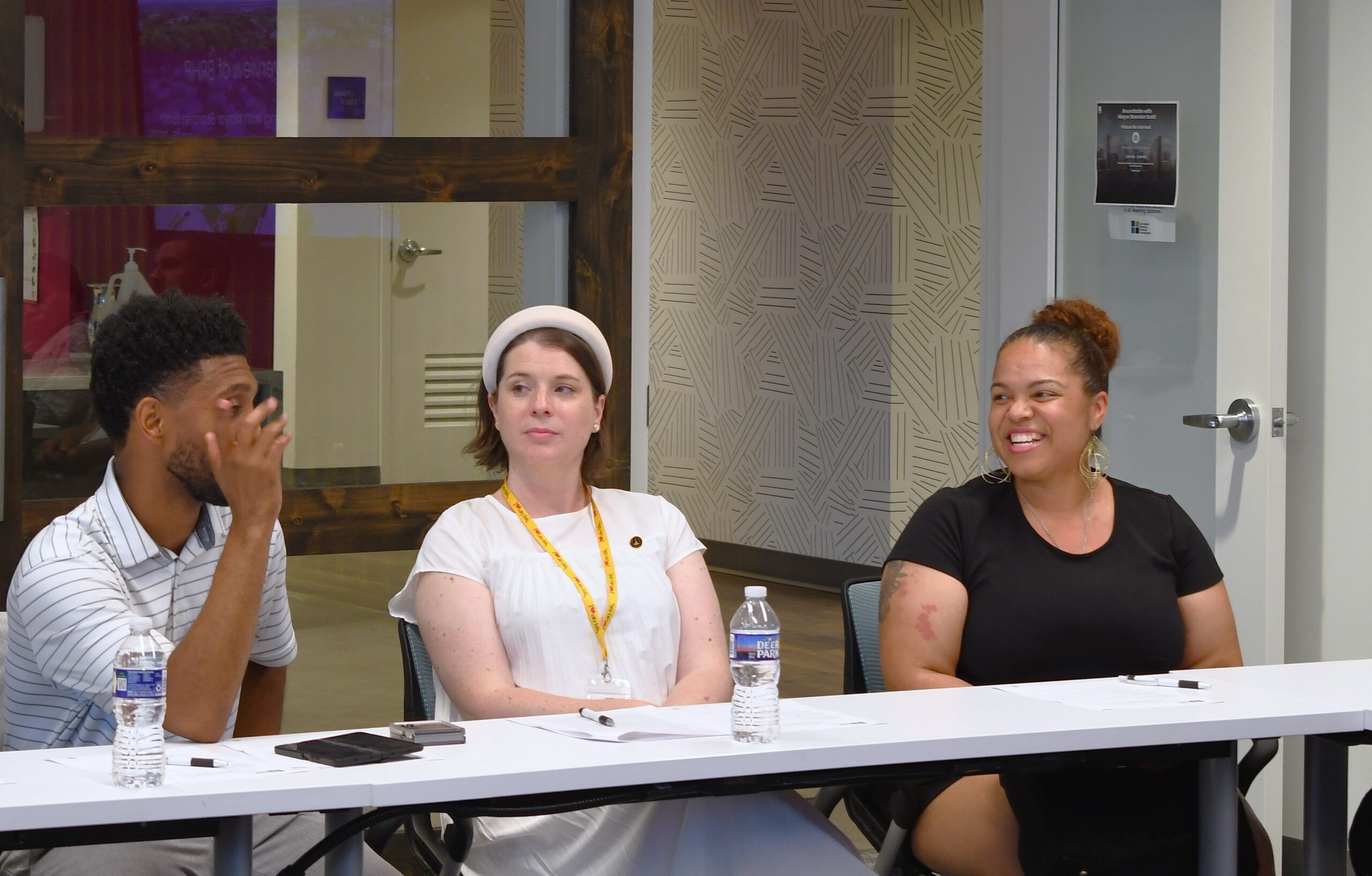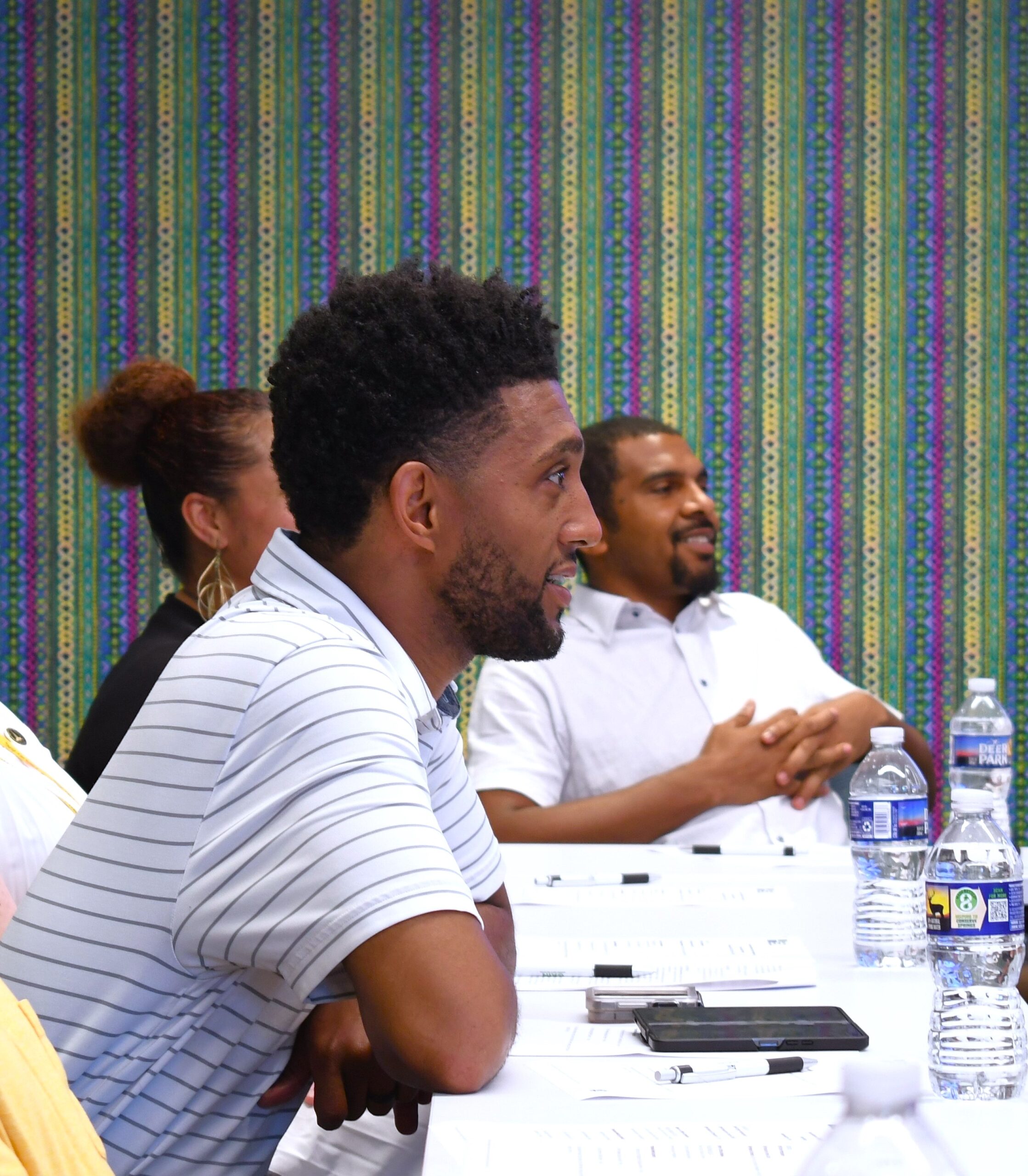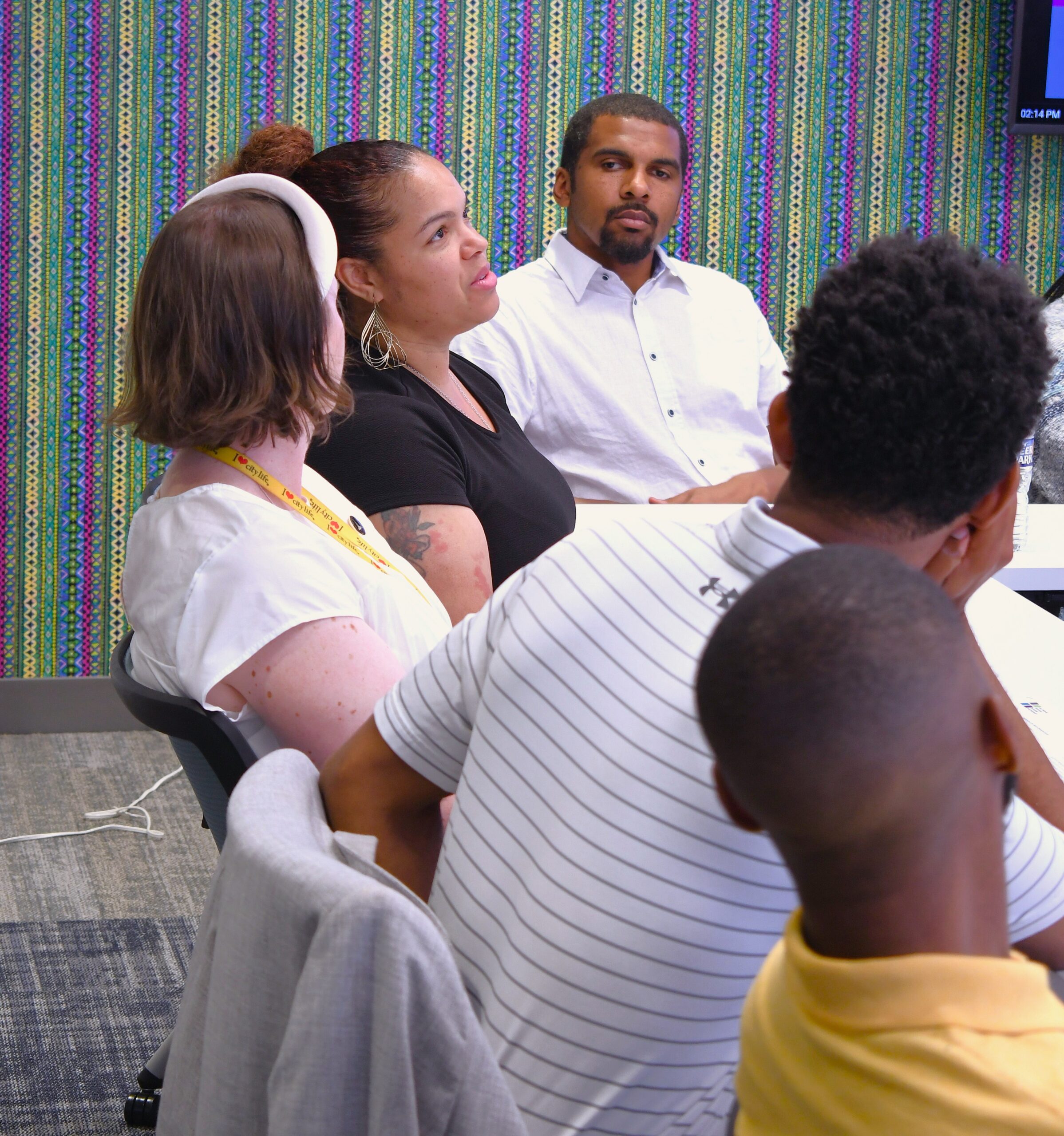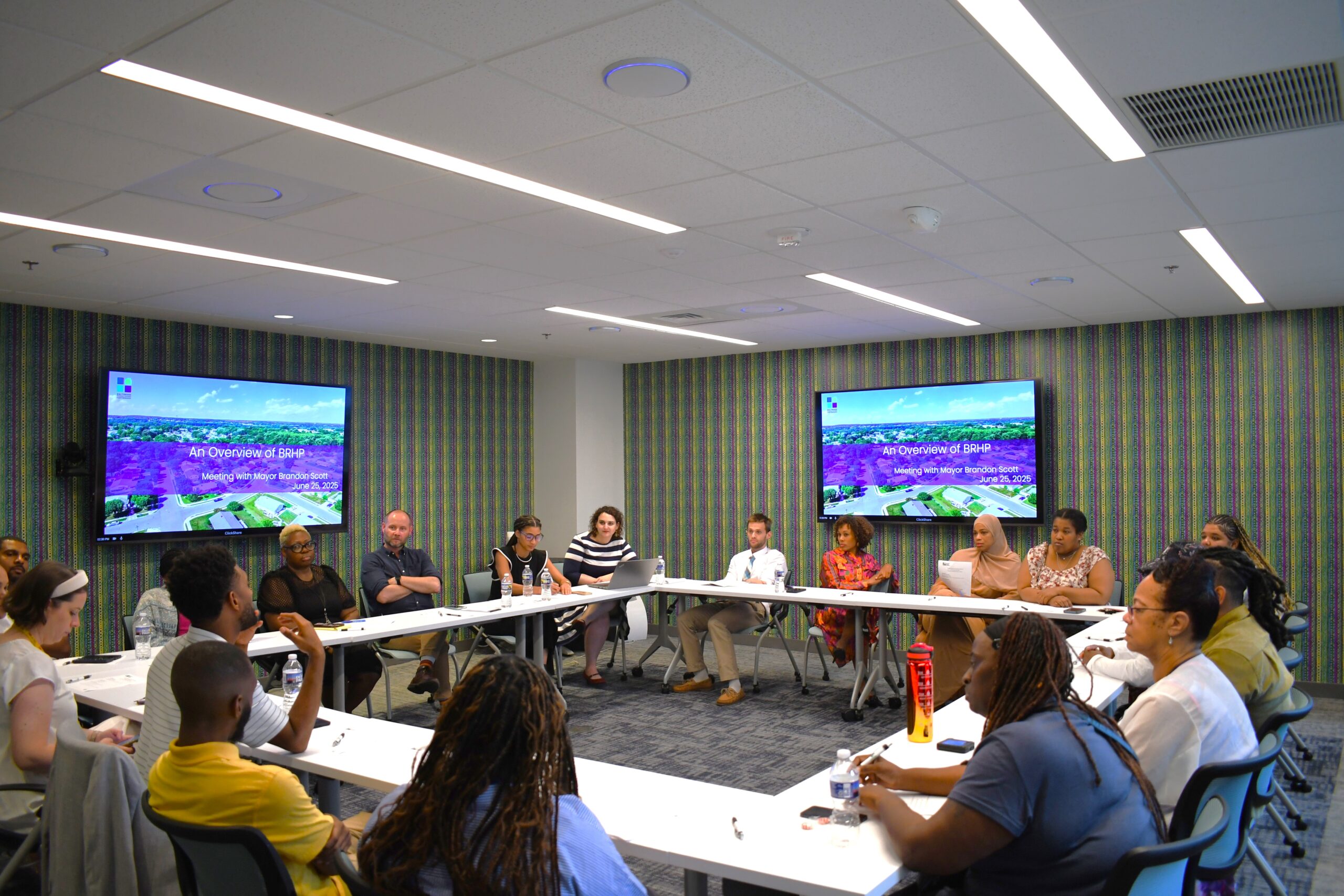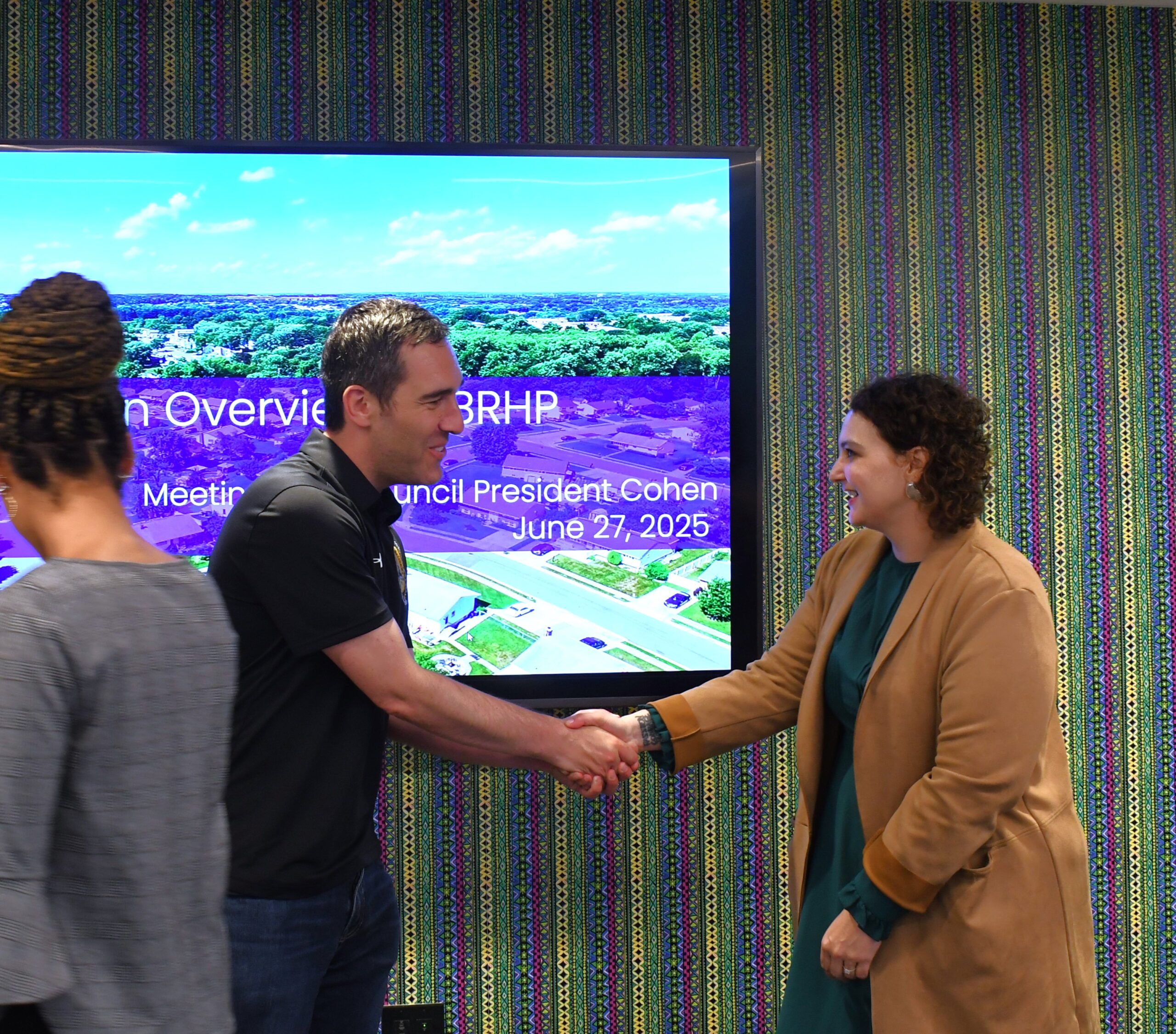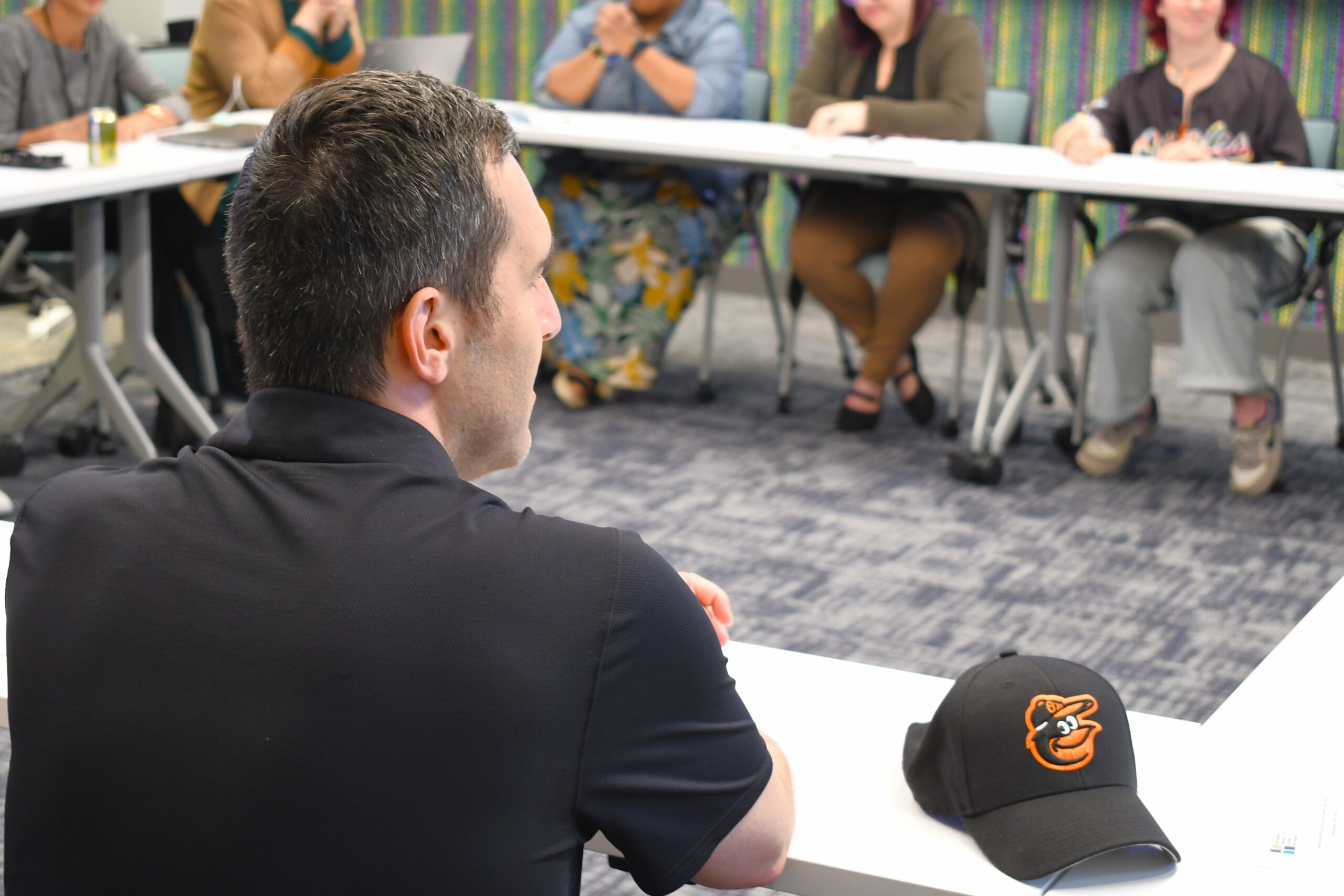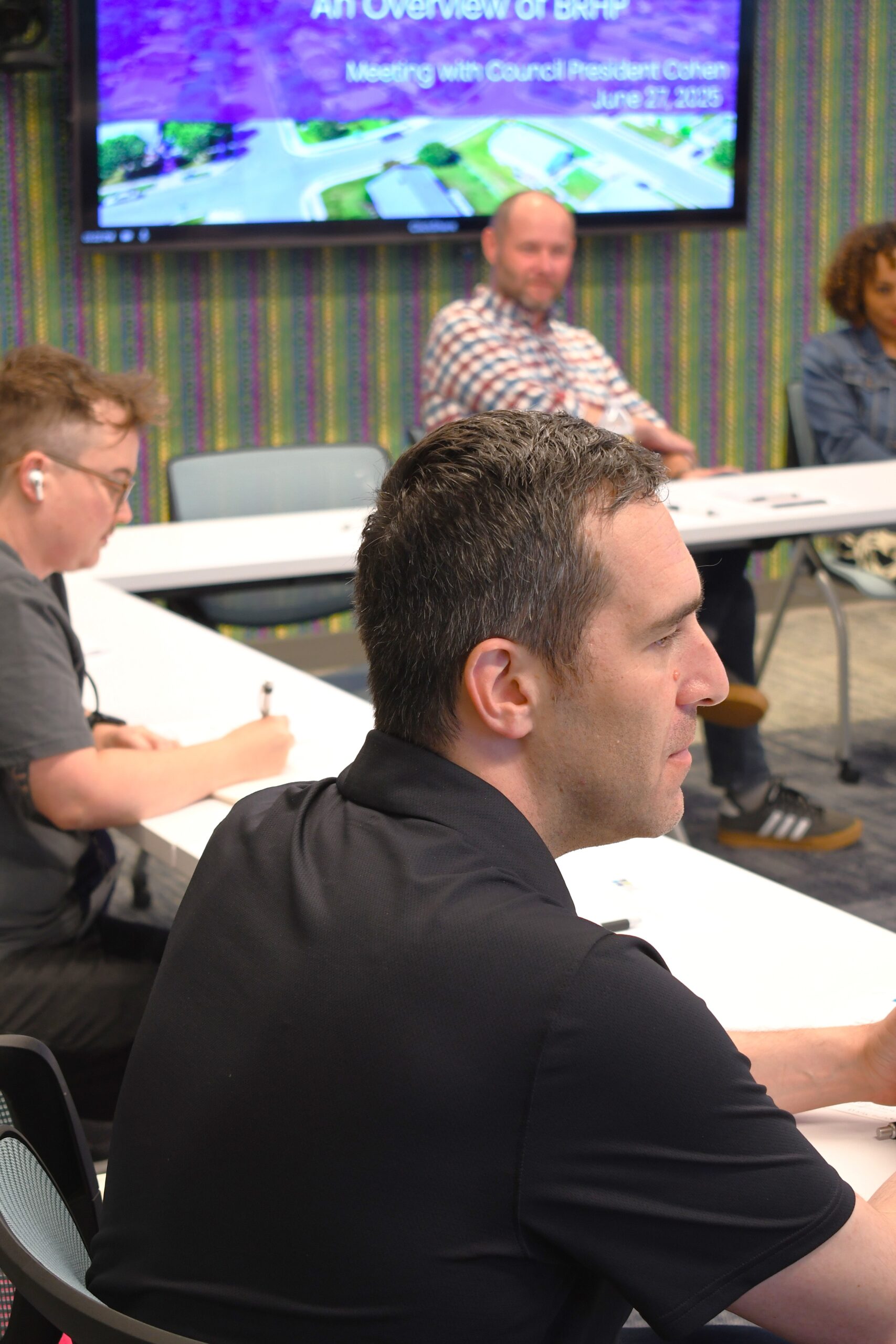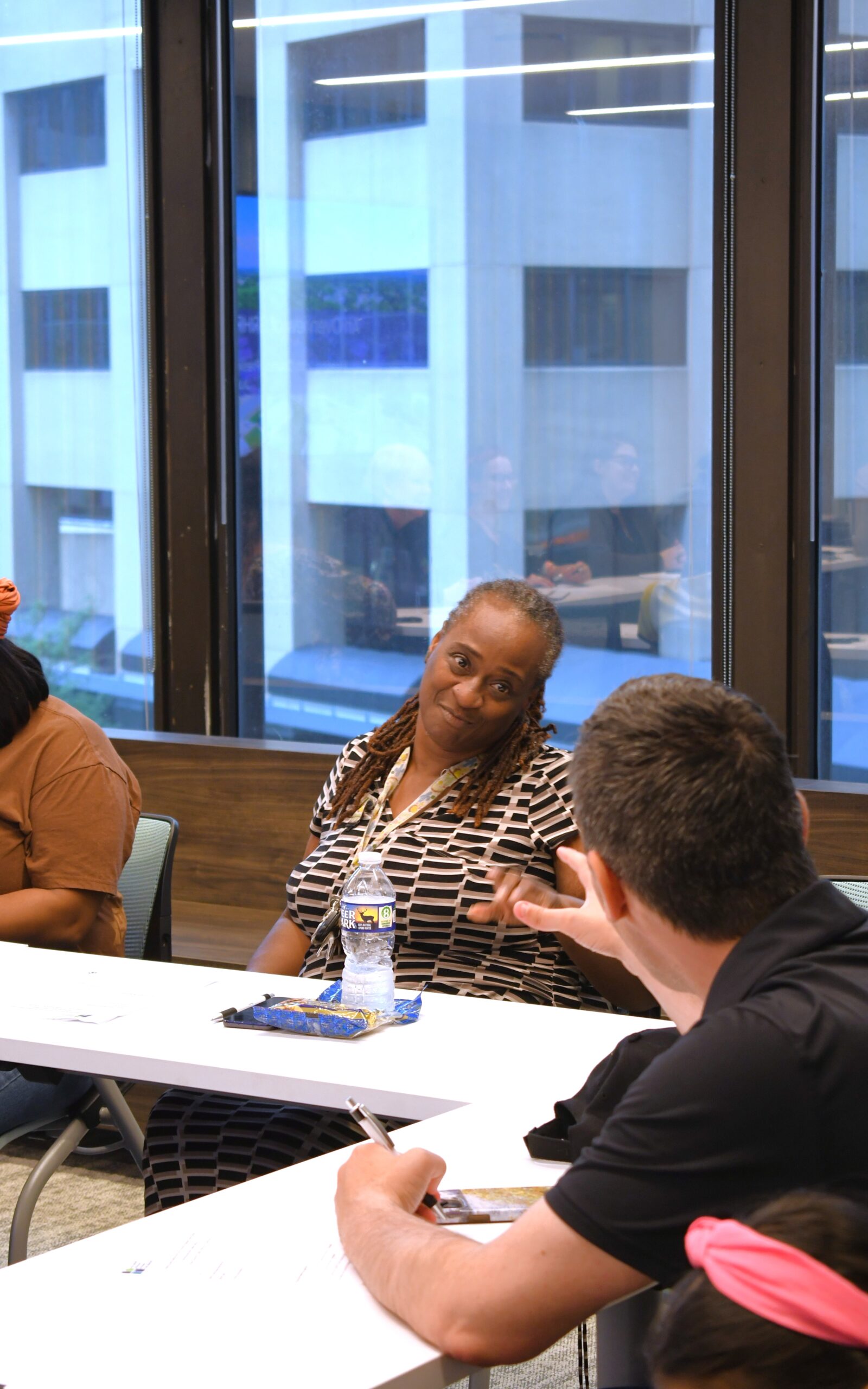For families navigating Baltimore’s housing landscape, policy isn’t abstract – it’s personal. That’s why we regularly host roundtable conversations connecting public officials with BRHP program participants. This June, we welcomed two of Baltimore’s top leaders – Mayor Brandon Scott and City Council President Zeke Cohen – for in-person dialogues focused on the urgent housing issues facing our families and communities.
Baltimore City Mayor Brandon Scott
On June 25, our organization welcomed Mayor Scott, who met directly with BRHP clients, staff, and members of the Board of Directors currently living in Baltimore City. Discussions were framed around some of the most urgent housing topics, as participants shared personal stories that brought their experiences to life and helped emphasize how city-level decisions shape their housing journeys. The Mayor spoke candidly about Baltimore’s legacy as the birthplace of redlining, stating, “Redlining was first signed into law in my office, where I sit every day,” and acknowledging the structural roots of housing inequality throughout the city. Mayor Scott went on to emphasize, “It’s about focusing on having a more equitable way of doing housing,” while outlining a vision that includes expanding access to homeownership for those historically shut out, creating new pathways to desegregate communities, and building new housing units across the city.

A central focus of the conversation was Baltimore’s persistent vacancy issue, which the Mayor called Baltimore’s “elephant in the room.” While the number of vacancies has dropped from 16,000 to about 12,600 under his administration—a significant achievement—he acknowledged that progress has been too slow and too piecemeal, “Now it’s time to bring those plans to scale,” he said.
Now, with a $3 billion investment in partnership with BUILD, his administration is taking swift action throughout neighborhoods in the ‘Black Butterfly’—a term coined by Lawrence T. Brown to represent how Baltimore’s majority-Black population is spread out like a butterfly’s wings on both sides of key real estate running down the center of the city. Through the city’s efforts like the Buy Back the Block project, tax incentives for communities with high vacancy rates, and taxing absentee property owners, Mayor Scott stressed the need for multi-pronged strategies to reclaim and rebuild communities from all angles. He also highlighted his collaboration with Councilman Ryan Dorsey on reforms aimed at loosening zoning requirements and expanding housing opportunities, noting this work is not to “ruin people’s neighborhoods” but to open doors for more inclusive development. Mayor Scott concluded by reaffirming the BRHP’s vital role in this work and committing to deeper collaboration.
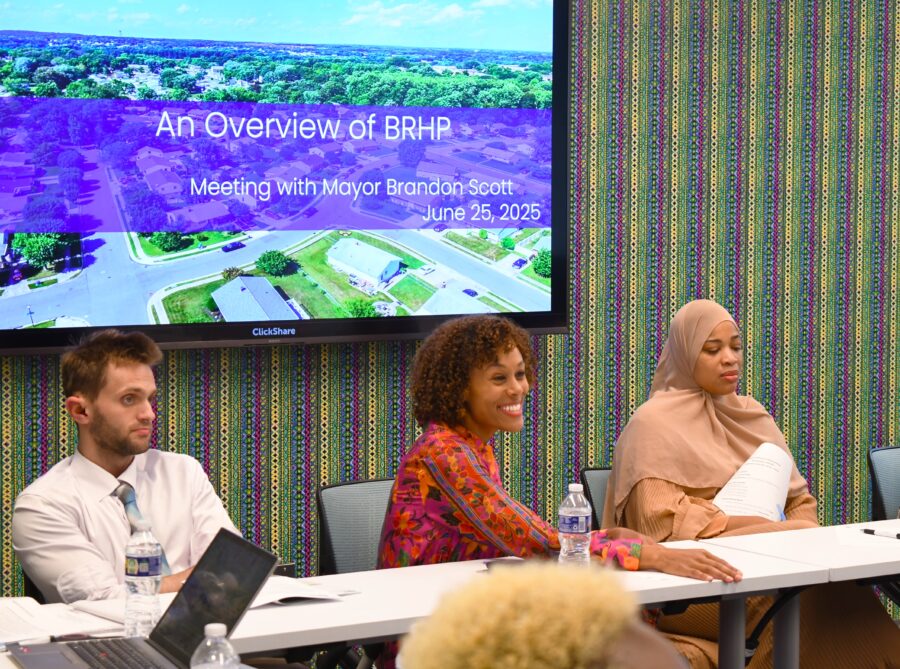
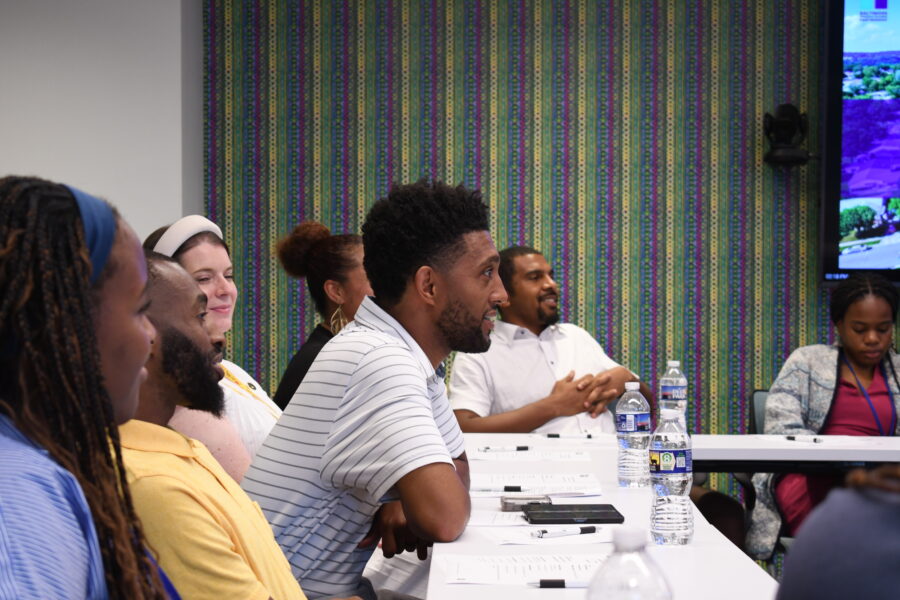
Baltimore City Council President Zeke Cohen
The second roundtable, held on June 27, welcomed City Council President Zeke Cohen to hear from participants and BRHP staff about policy changes and partnership opportunities within the city. President Cohen, joined by his young daughter, brought both a professional and personal lens to the dialogue on housing affordability. He shared a common perspective as a parent of two, acknowledging, “Everyone just wants to do the best by their kids,” and noting how the rising cost of living—including BGE and water bills— “all compounds and makes it difficult to be there [for the kids].” He then emphasized the City Council’s focus on preserving affordability in Baltimore and spoke to his ongoing collaboration with Mayor Scott on the Housing Options and Opportunity Act to ensure the city remains one of the more affordable urban cities on the East Coast.
Cohen emphasized housing as a key driver of both community stability and economic opportunity. “We want to grow our population, while retaining those who live here,” he said while underscoring Baltimore’s potential to revitalize itself through its vacant housing stock. Cohen pointed to the recently approved Baltimore City budget, which includes increased funding for initiatives like Live Baltimore’s Buy Back the Block, aimed at reclaiming and reinvesting in vacant properties across the city. For him, meaningful progress means building a city for Baltimoreans and by Baltimoreans.
As the conversation progressed, zoning reform emerged as another key focus and concern. In response, Cohen emphasized the importance of increasing housing density while preserving the character of Baltimore’s historically ‘blue-collar’ neighborhoods. Efforts include easing outdated parking requirements, allowing homeowners to subdivide properties, and creating more flexible development pathways. These changes, he explained, are aimed at building a more inclusive housing landscape that meets residents where they’re at.
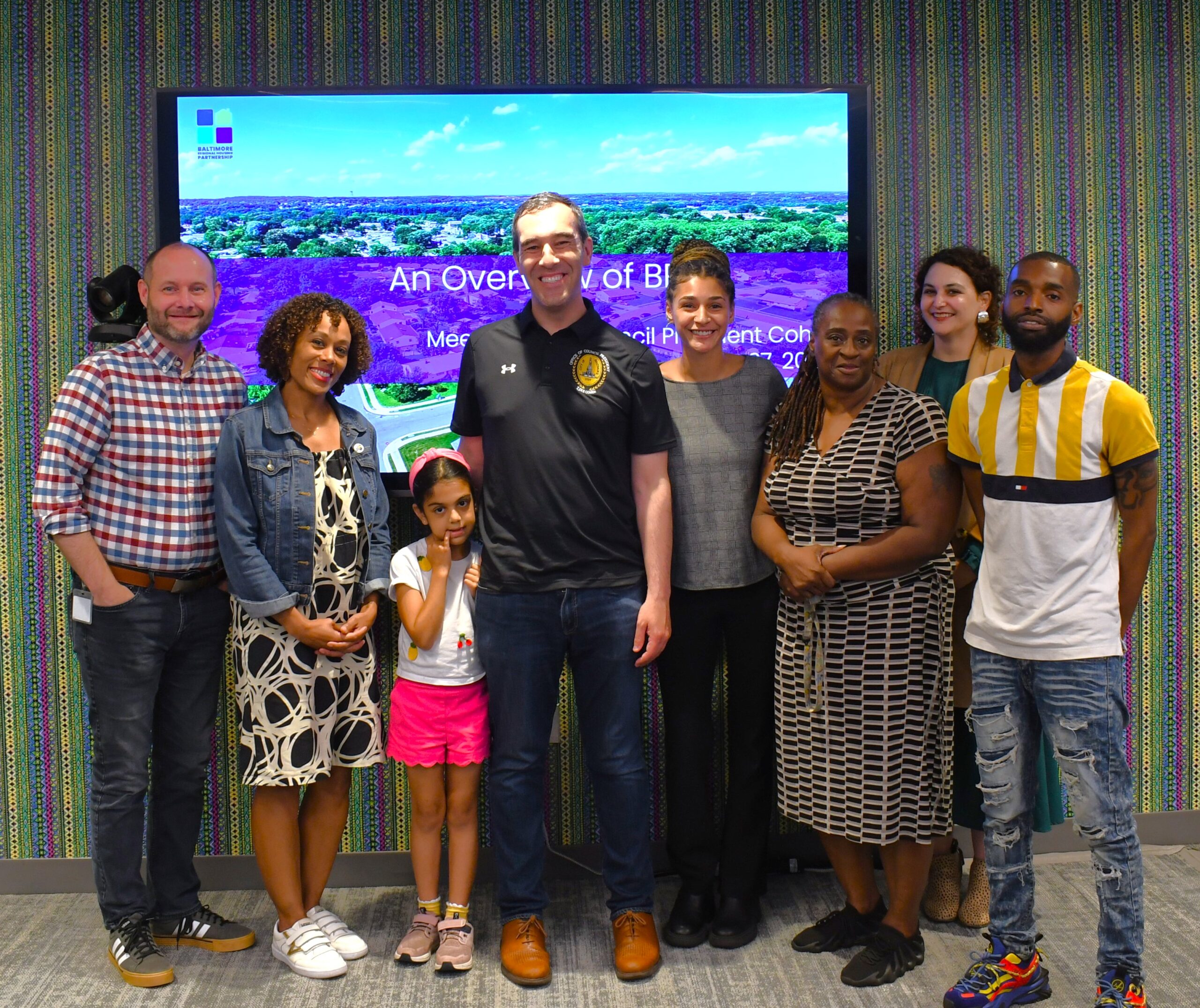
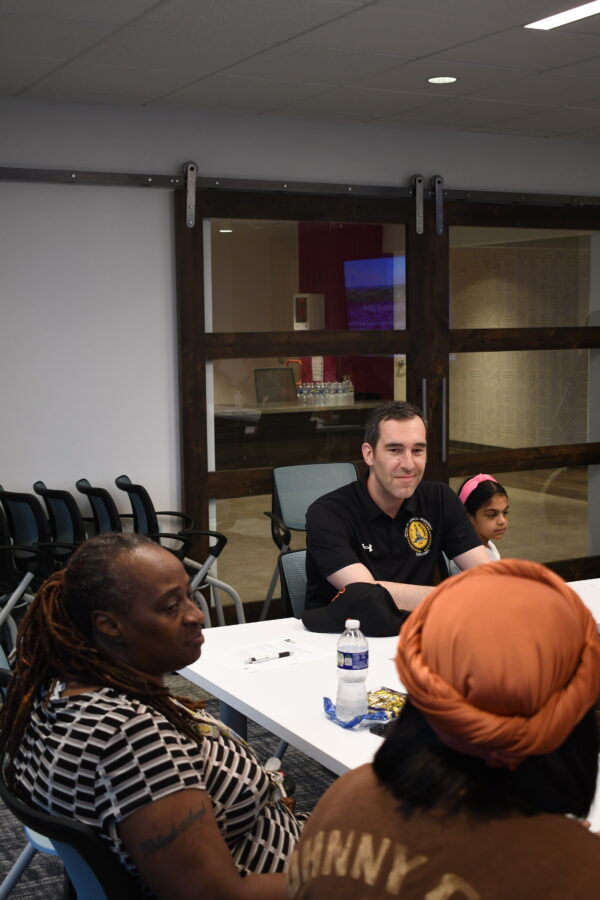
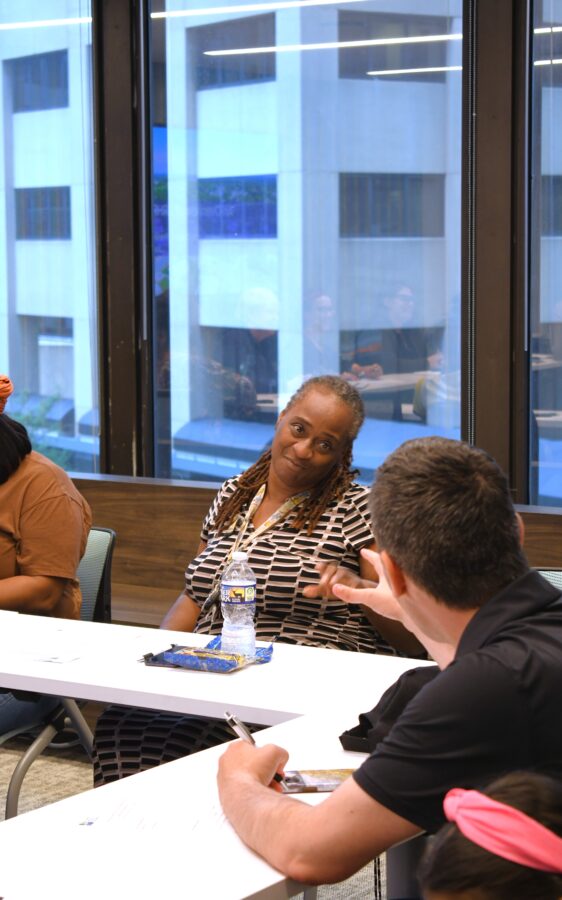
Cohen concluded the roundtable by thanking BRHP for its continued partnership with the Housing Authority of Baltimore City (HABC) and recognized the organization’s role in advancing housing opportunities across Baltimore. Reflecting on Baltimore’s history as the birthplace of redlining, Cohen emphasized that dismantling the legacy of segregation will require the same level of intentionality—and likely even greater effort—as what was once invested in creating it. His remarks reinforced the need for policies that prioritize housing choice, neighborhood reinvestment, and intentional desegregation. With a smile and a nod to shared responsibility, Cohen closed on a hopeful note that, “It’s critically important to keep working together to keep Baltimore the best city on earth.” A fitting reminder that progress takes partnership and pride in the place we all call home.
The initiatives raised during both roundtables reflect a broader housing strategy pursued in partnership between the Mayor’s Office and the Council. Together, these efforts aim to address Baltimore’s affordable housing needs, reduce vacancies, and create pathways to stability and homeownership for those long excluded from opportunity. We thank both Mayor Scott and Council President Cohen for the dialogue and look forward to continuing the collaboration.
Written by: Micah Avery, Special Projects Coordinator with contributions from Adedoyin Adeyele, Communications and Special Projects Intern

